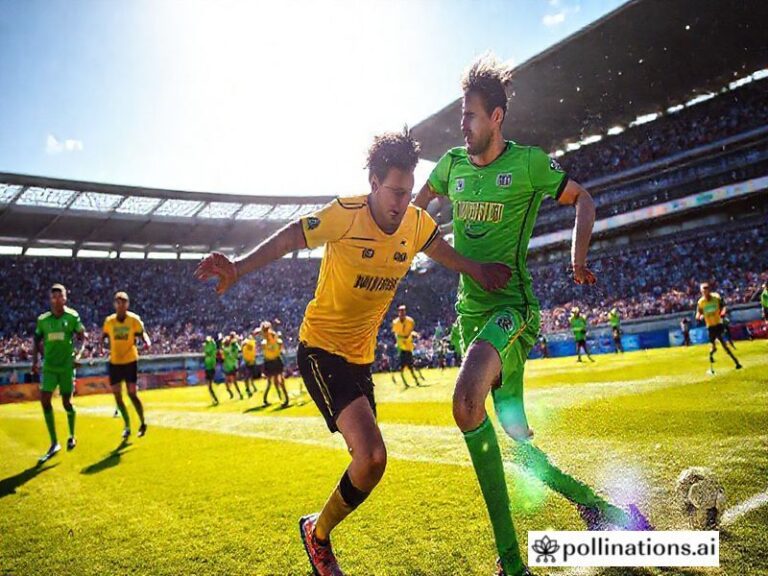Roberto Olabe: The Basque Brain Quietly Reprogramming World Football From the Inside Out
Roberto Olabe: The Quiet Spaniard Who Turned Football’s Global Assembly Line on Its Head
By Dave’s Locker International Correspondent
Somewhere between the fluorescent glare of a nondescript La Liga training complex and the fluorescent glare of a nondescript Gulf-state hotel lobby, Roberto Olabe is probably explaining—calmly, in that Basque-inflected Spanish that sounds like a lullaby delivered by a tax auditor—why the future of the planet’s most lucrative circus hinges on something as unsexy as “long-term cognitive load adaptation.” If that phrase makes your eyelids flutter like a referee trying not to look at VAR, congratulations: you’re exactly the demographic global football has monetised into oblivion. And Olabe, officially the Sporting Director of Almería but unofficially the world’s most polite wrecking ball, is here to fix the mess we all paid to watch.
A decade ago, Olabe was the anonymous lieutenant at Real Sociedad who convinced the club’s money men that hoarding teenagers was a better bet than panic-buying 29-year-olds with cartilage the texture of damp shortbread. The model—nicknamed “Olaball” by the sort of bloggers who still live with their mothers—has since metastasised across five continents. From the red-earth academies of Ghana to the glass-and-shame skyscrapers of Riyadh, executives now speak of “Olabe metrics” with the hushed reverence usually reserved for Swiss banking secrecy. The irony, of course, is that the man himself drives a used Peugeot and thinks TikTok is a brand of breath mint.
Global implications? Picture the transfer market as a bloated Bond villain slowly realising the oxygen supply is running low. Europe’s elite, still nursing the hangover from Neymar’s €222 million Parisian bender, suddenly noticed that Olabe’s graduates arrive pre-trained in pressing patterns, sleep cycles, and the sort of psychological resilience that stops them Instagramming their own depression. Cue a frantic arms race: Bayern poached his data analyst, Arsenal tried to hire his cat (reportedly a better judge of centre-backs than most Premier League boards), and even the MLS—where hope traditionally goes to die—now flies prospects to Andalucía on budget airlines to drink from the Olabe firehose.
The broader significance is darker, naturally. Olabe’s revolution coincides with football’s mutation into a sovereign-wealth playground. When Saudi Arabia’s Public Investment Fund waved a chequebook the size of Jupiter at Almería, cynics assumed the Basque would be window dressing, like ethics at a crypto conference. Instead, he’s leveraged Gulf liquidity to build a pan-African scouting network that makes FIFA’s development programs look like a bake sale. African teenagers now arrive in Spain speaking fluent gegenpressing but still unsure what to do with indoor plumbing—progress, of a sort. Meanwhile, European fans clutch pearls about “sportswashing” while streaming every match on pirate sites hosted in jurisdictions that barely exist. Schadenfreude, table for six.
Human nature? Olabe understands we’re all just shaved apols with Wi-Fi. His secret sauce isn’t data; it’s storytelling. He tells a 17-year-old Senegalese winger that mastery is sexier than money, then convinces Emirati royalty that delayed gratification is a branding exercise. Somewhere in between, reality develops hairline fractures. When Almería sold their first Olabe-bred prodigy for €40 million, the player thanked “the entire ecosystem”—not his agent, not God, but an ecosystem, as though he’d been raised by benevolent algae. Fans lapped it up; hedge-fund algorithms adjusted accordingly.
And yet. For all the spreadsheets and sleep coaches, the beautiful game still runs on the same ancient fuel: a kid chasing a ball through dust and rain, dreaming of escape. Olabe just built a more efficient pipeline from that dust to the marble lobbies of global capital. Whether that constitutes salvation or gentrification depends on which end of the pipeline you’re standing on—usually the one where the water tastes like sponsorship.
Conclusion? Roberto Olabe has done what the United Nations never could: unite disparate continents under a single operating system, albeit one that measures progress in transfer fees and expected goals. It’s ruthless, rational, and weirdly hopeful—a microcosm of our fractured, hyperconnected world where every miracle comes with a QR code. Somewhere tonight, another teenager is learning to press in the 83rd minute because a Basque whispered that fatigue is just data waiting to be hacked. God help us all; the algorithm is winning, and it’s wearing trainers.







